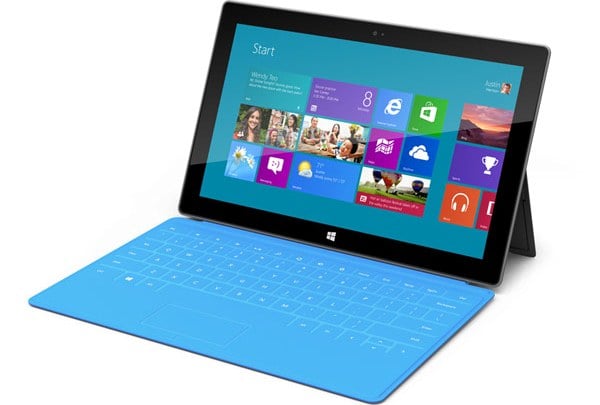Technology
Microsoft Should Cut Prices on Its Surface Tablet
Published:
Last Updated:
By the estimates of industry research firm IDC, Microsoft Corp. (NASDAQ: MSFT) posted 900,000 sales of its Surface tablet in the fourth quarter. That put it behind industry leaders like Apple Inc. (NASDAQ: AAPL) and Samsung, but not hopelessly behind the lower tier of firms such as Barnes & Noble Inc. (NYSE: BKS) and Asus. Source: courtesy of Microsoft
Source: courtesy of Microsoft
Given the lack of popularity of the Window OS, which powers the Surface, Microsoft’s best chance of moving into competition with Amazon.com Inc. (NASDAQ: AMZN), which sits in third place, is to sharply cut its retail price.
Microsoft need only look to Amazon to see how price drives unit sales. Many analysts assume that the world’s largest e-commerce company barely breaks even on its Kindle and Kindle Fire machines. The Wi-Fi-powered Kindle HD Fire retails for as low as $269. The version that operates on 4G as well sells for as little as $449. The low-powered Surface RT sells for $499. The more powerful Windows 8 Pro Surface carries a base price of $899. Microsoft may have priced these tablets to make money, but it has not priced them to sell, particularly in a market in which the consumer already has shown he is not receptive to the machines.
There is precedent in Microsoft’s past for the use of low prices to gain a place in an established market. When Microsoft launched early versions of the Xbox game console over a decade ago, no one believed it could make inroads into a market completely dominated by Sony Corp.’s (NYSE: SNE) PS2. After years, and billions of dollars in losses in its entertainment division, Xbox finally has become the leader in the industry.
The reason Microsoft may balk at lower prices for the Surface is that it does not sell the kind of the products that Amazon and Apple do to boost earnings after their machines have been sold. Amazon may not have margins on the Kindle, but it almost certainly makes money on e-books and other content offerings for the Kindle. Microsoft does not have a similar product. Apple has tens of thousand of apps that work on the iPad.
If Microsoft is in the tablet business for the long term, it will have to create a library of content and apps. If the industry’s past has any lesson, it is that apps help sell machines, and a strong consumer base of machines in the market helps sell apps. If Microsoft wants to stay in the tablet business for long, it will have to cut prices to build the kind of hardware/software bases that its larger rivals have.
Finding a qualified financial advisor doesn’t have to be hard. SmartAsset’s free tool matches you with up to 3 fiduciary financial advisors in your area in 5 minutes. Each advisor has been vetted by SmartAsset and is held to a fiduciary standard to act in your best interests. If you’re ready to be matched with local advisors that can help you achieve your financial goals, get started now.
Thank you for reading! Have some feedback for us?
Contact the 24/7 Wall St. editorial team.